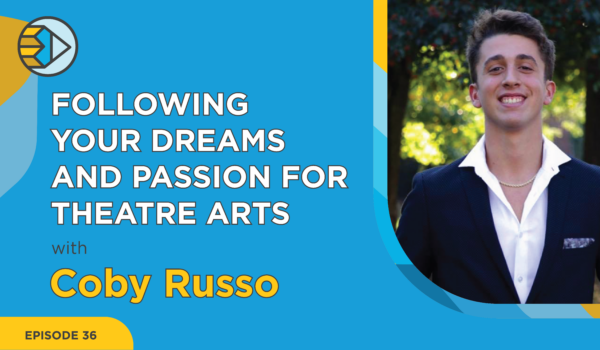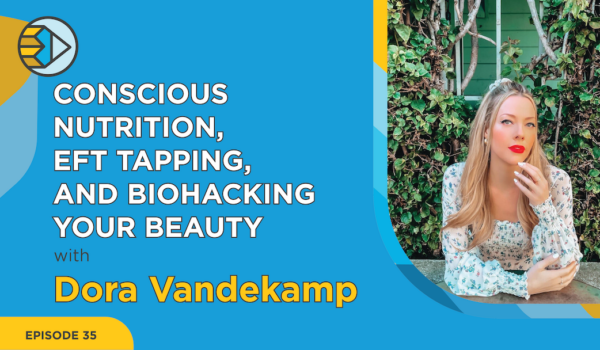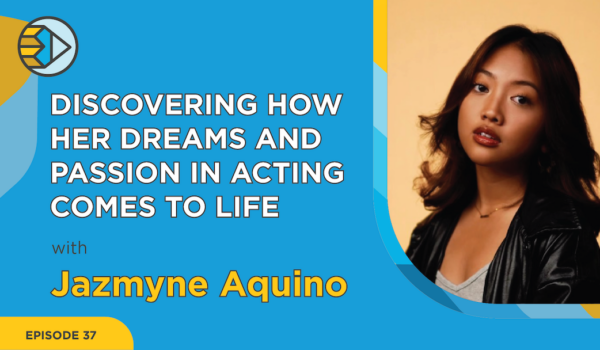
Alexis Terraciano on Changing Career Paths, Following Your Dreams, and Embracing Your Future
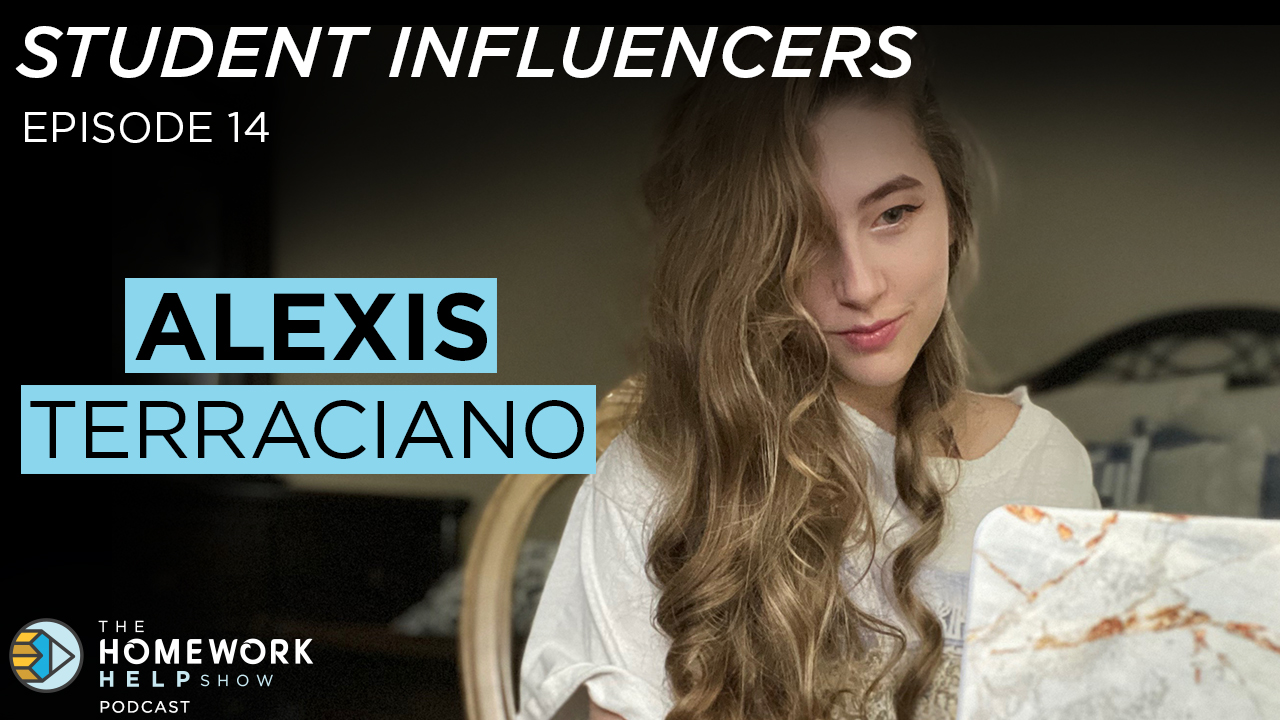 If you’re considering changing career paths to pursue your dreams and passions, you may want to listen to what Alexis Terraciano has to say. On The Homework Help Show Student Influencers Podcast, we caught up with Alexis and got her to share her best insights on her experience with changing career paths, switching from her exercise science degree to applying to pharmacy school, and learning to embrace the challenges of adjusting to university life.
If you’re considering changing career paths to pursue your dreams and passions, you may want to listen to what Alexis Terraciano has to say. On The Homework Help Show Student Influencers Podcast, we caught up with Alexis and got her to share her best insights on her experience with changing career paths, switching from her exercise science degree to applying to pharmacy school, and learning to embrace the challenges of adjusting to university life.
Alexis is a recent graduate from Kennesaw State University in Kennesaw, Georgia. She was born and raised in Atlanta, Georgia, and still calls the city home. At Kennesaw, she graduated with a degree in exercise science and a minor in Spanish. When we caught up with her, she was finishing up some online classes to gain the credentials she needs to take the PCAT and apply to pharmacy school.
If you’re thinking about switching career paths or college majors, Alexis has a lot of advice and insights. Even if you aren’t, and are just trying to balance all of the responsibilities in your student life, you don’t want to miss out on her valuable advice.
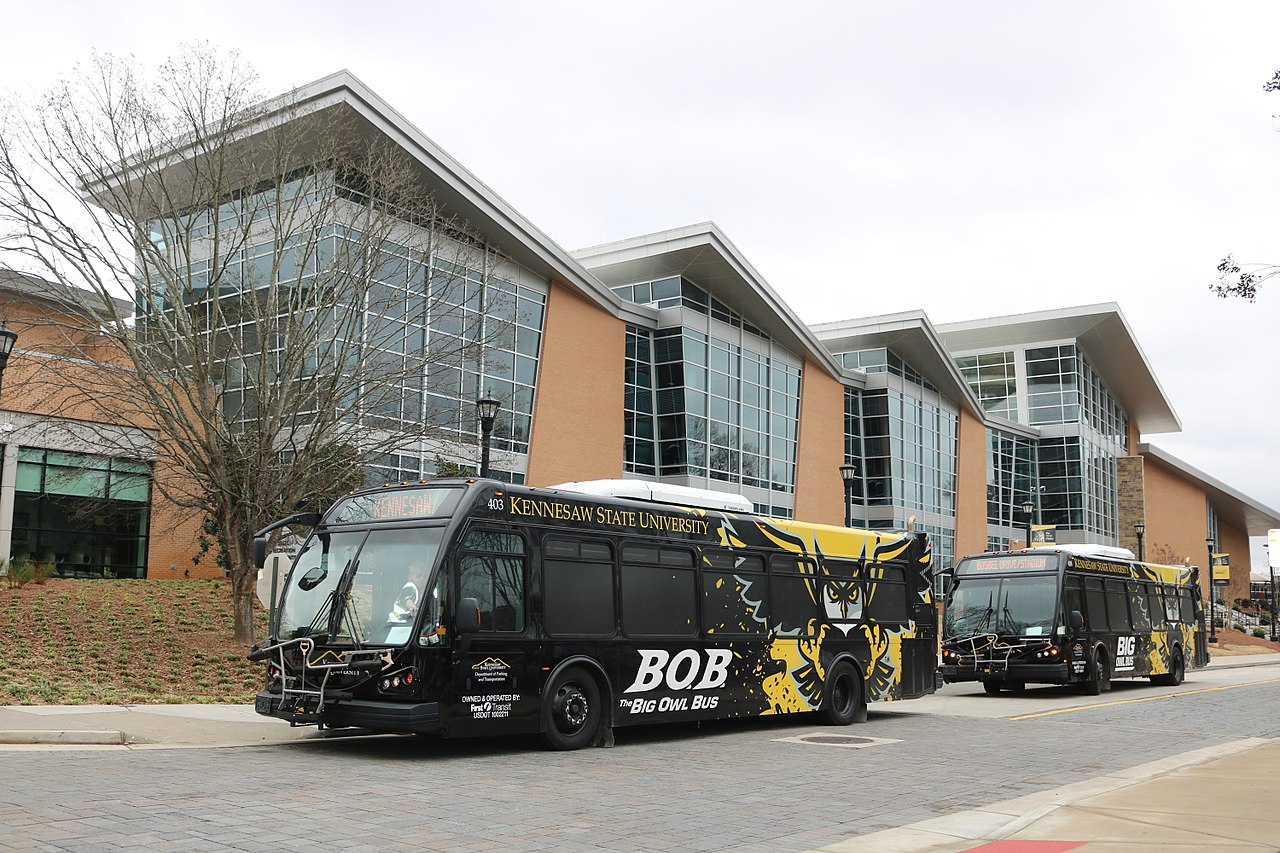
Chasing Dreams, One Major at a Time
Ever since she was little, Alexis knew that she wanted to work in the healthcare industry. She grew up with a strong passion for helping people as well as science, so heading into exercise science seemed like the perfect fit. After high school, she took the next step and enrolled at Kennesaw State University.
Originally, her goal was to take the exercise science degree and then go to graduate school to become a registered dietician. However, she realized mid-degree that she wasn’t as interested in this path as she had originally thought, and was more interested in the physiological aspect as well as chemistry.
To make her dreams come true, Alexis knew she had to consider changing career paths, even though she was a semester shy from her graduation. It can be tough (and frightening) to be that close to finishing up a degree you’ve worked towards for the last four years and realize it might not be what you want to do with your life. But Alexis had a plan to make it work. Unwilling to let her fears get in the way, she finished up her year and obtained her exercise science degree, with a minor in Spanish, and is now taking some online courses so she can apply to pharmacy school.
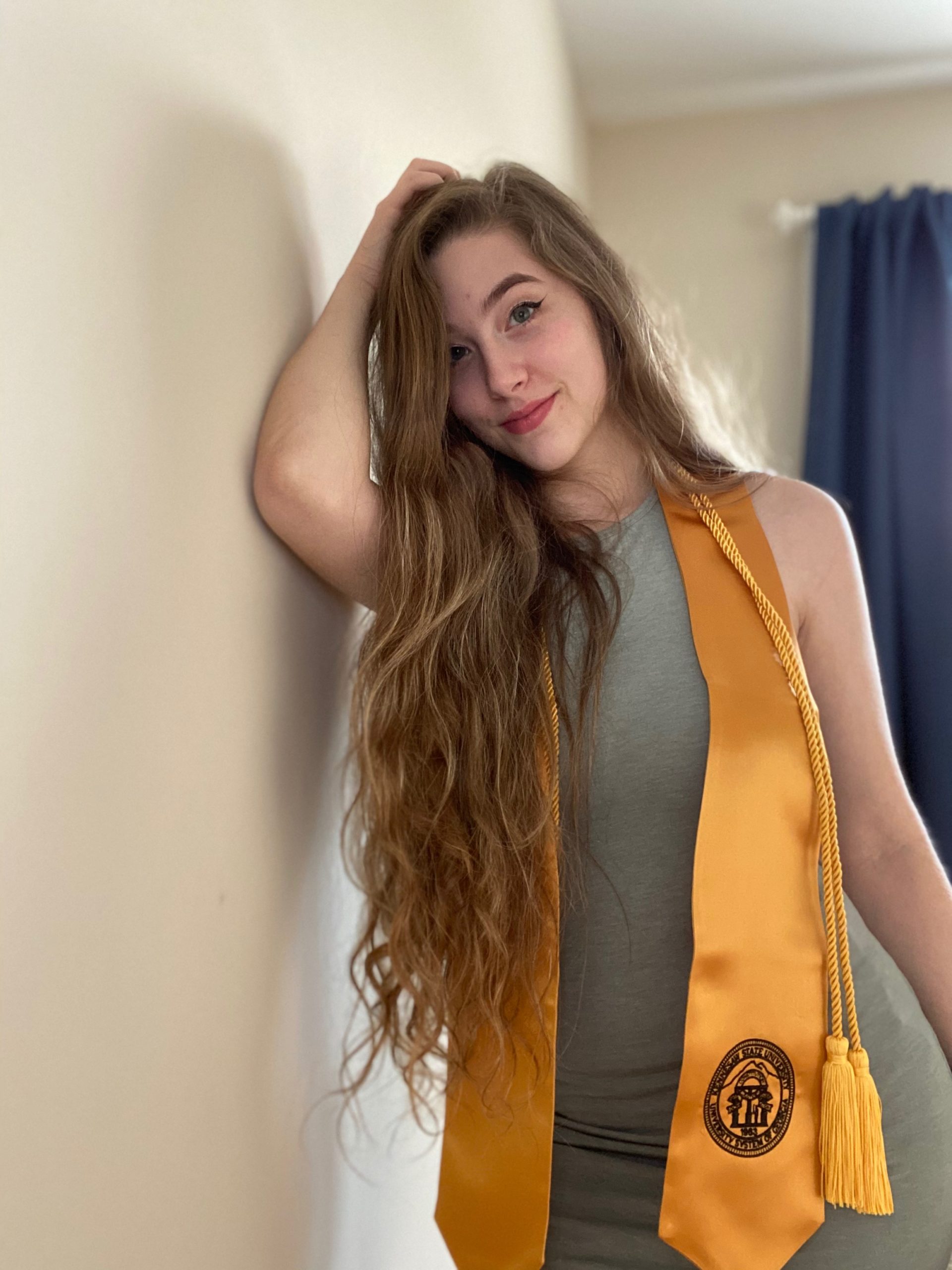
Thinking About Switching College Majors or Changing Career Paths? Go For it!
If all of this sounds like a struggle you’ve been working through, remember Alexis’ advice: “College isn’t always about picking one thing and sticking with it and knowing this is what you want to do. It’s also learning about what you don’t want to do.”
College or university is a time to discover more about yourself and where your passion truly lies. You meet new people every day who inspire you, whether that’s through a new outlook on life or new interests for you to explore. If you’re working through a course and you’re realizing that you’re not really cut out for this program, there’s nothing wrong with trying to find a new avenue to explore.
When you apply to go to school, you’re still a teenager in high school and you’re facing pressure to make a decision that determines what your future will be. That’s a lot of pressure for a 16 or 17 year old to deal with. Most of the time, you likely haven’t had a lot of real life experience to work through and are really absorbed in what’s happening within your bubble. How are you supposed to figure out what you want to be doing forever?
Choosing a major that’s right for you isn’t always a clear choice, either. What you thought you were once interested in may not be something you end up wanting to do for the rest of your life. In fact, according to statistics from the University of Toronto, 50-70% of undergraduate students will end up changing majors at least once in their academic career.
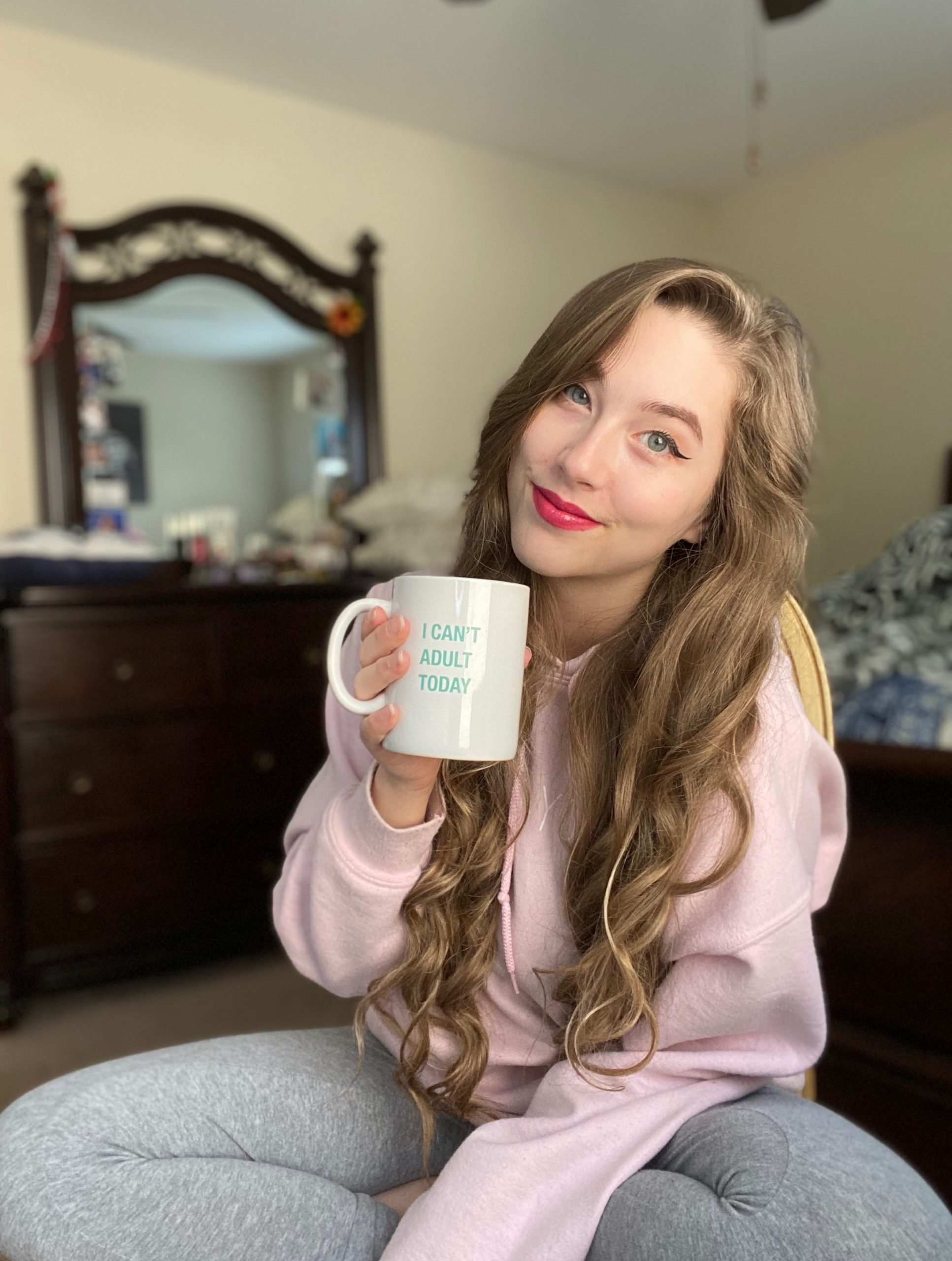
Sometimes it Takes a Bit of Trial And Error
Adjusting to university life isn’t easy, and Alexis experienced that firsthand when she transitioned from high school to university. When you get to college, you have so many responsibilities that you never had before, and you’re accountable for yourself. No one is there to hold your hand and guide you through it. This is something that many students either don’t realize or aren’t fully prepared for when they set off for their freshman year.
For Alexis, getting used to that balance took a lot of practice and a lot of work developing positive habits, like prioritization and time management, that helped her stay focused on her studies in a new learning environment. She says it took a lot of trial and error to figure out a system that worked for her personally, with a fair balance of school work, self-care, class time, and socialization.
She even balanced a part-time job during school, and recommends that other students get a part-time job if they have the opportunity to do so. For some students, getting a part-time job is necessary to keep up with the cost of living in a new city. No matter how or why you get a part-time job, working through your time at school can help you build a strong work ethic that not only helps shape your character, but also looks great on a resume, too.
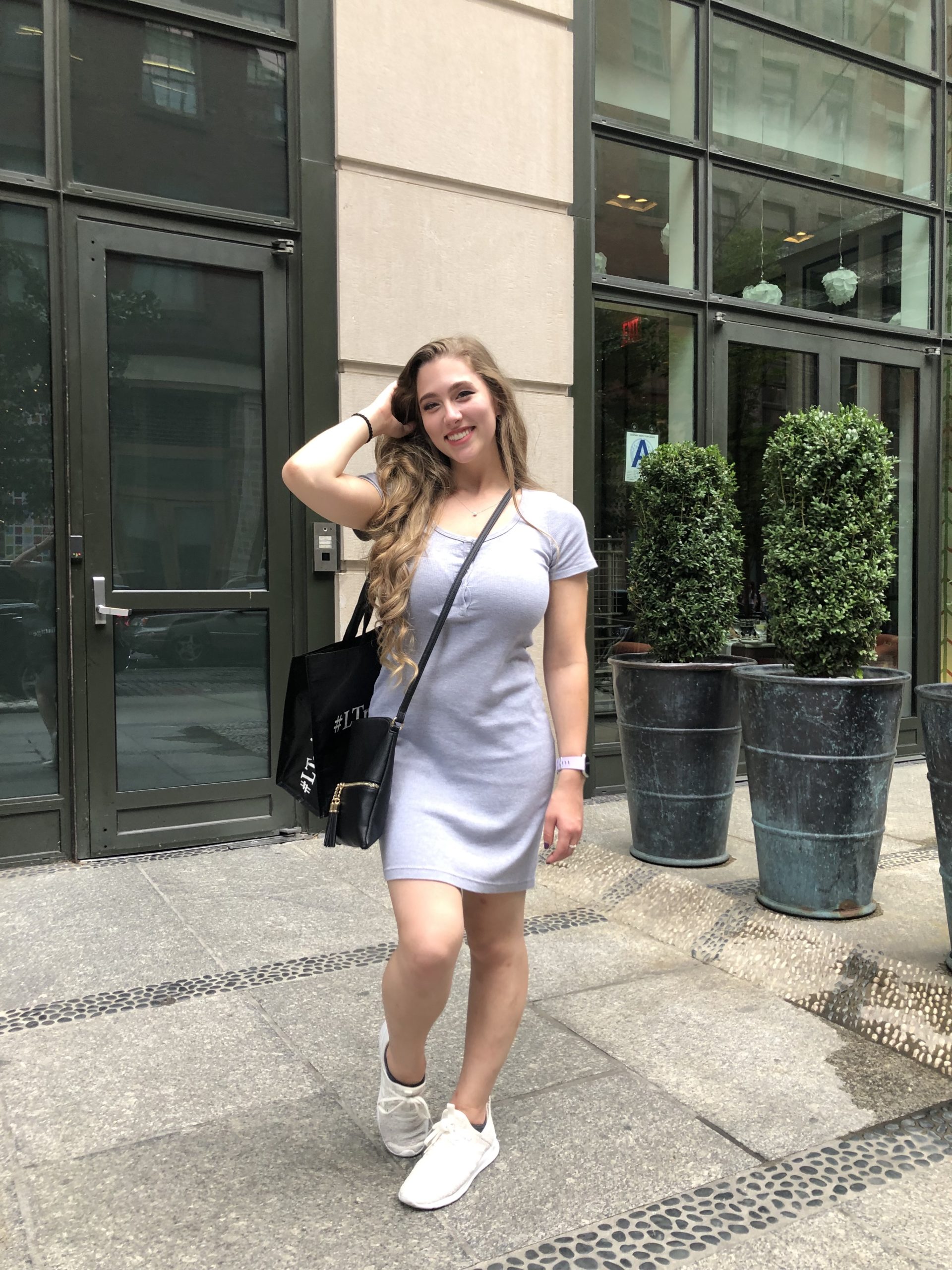
Get Your Priorities in Order
Alexis’ biggest piece of advice, and something she focused on to get her through completing her exercise science degree, was making sure that she was properly prioritizing all of her responsibilities.
Prioritization is key to successful time management, organization, and productivity. However, many students struggle with getting their priorities in order, often because the temptations of maintaining an enriching social life can be much more appealing than sitting at home studying. For others, the demands of working part-time during school and keeping up with a full-time course load can be a lot to manage.
“For me, it was deciding what means the most to me and prioritizing that. So number one was studies first. Always,” Alexis says. That meant sacrificing some nights out with friends if she had a big exam coming up, and giving herself the time she needed to study and prepare.
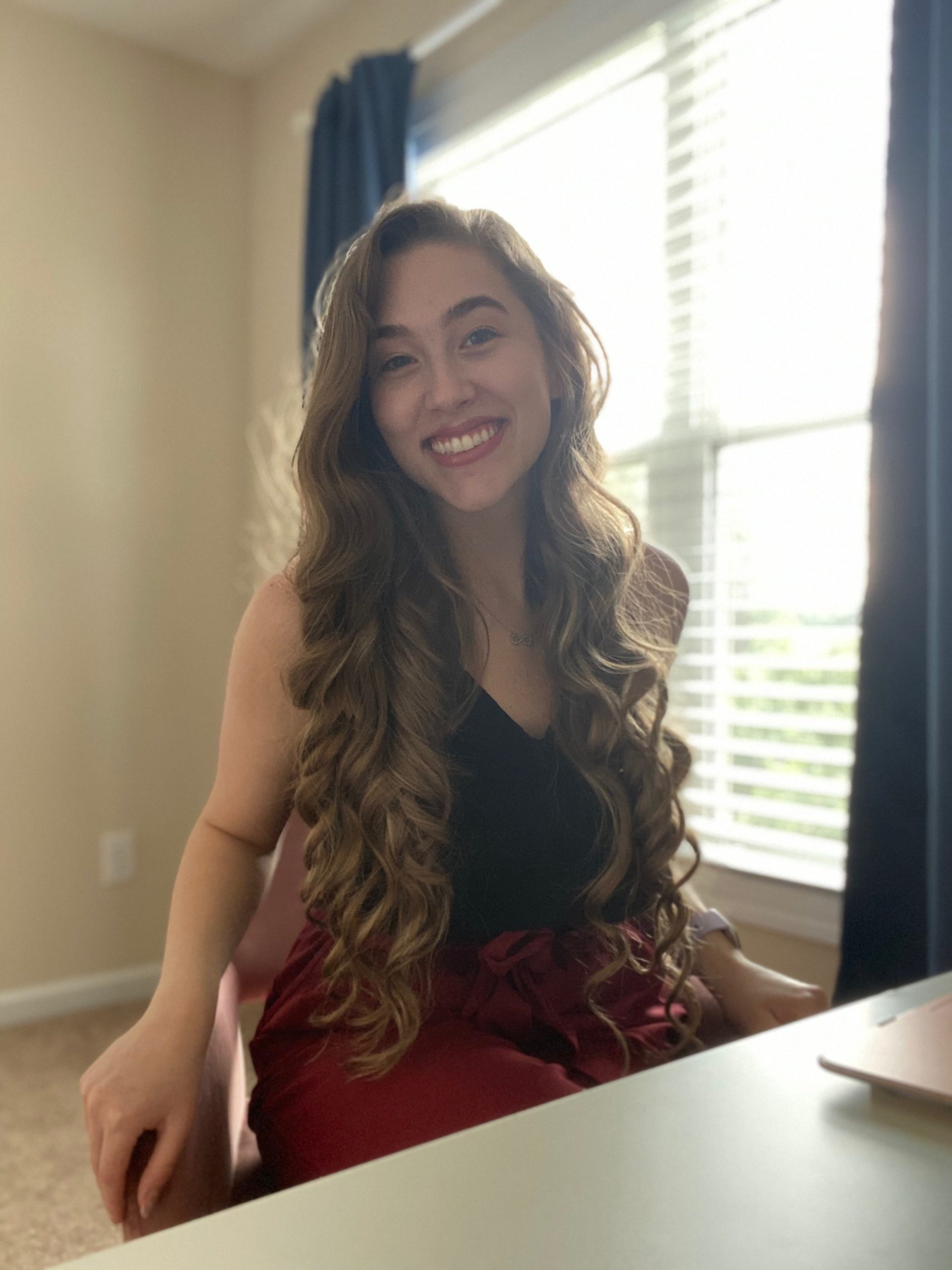
The Value of Tutoring Lessons During Your Undergraduate Degree
In her first semester, Alexis faced some challenges with her organic chemistry class. Instead of succumbing to pressure and trying to take on all of that struggle on her own, she decided to reach out and ask for help. That’s when she made the decision to attend tutoring sessions her class was offering for free.
As soon as she reached out and opened herself to help, she began to see organic chemistry in a completely different way. Her tutor made everything so much easier to understand, and she began to fall in love with the class in a way she’d never imagined. In fact, she credits those tutoring lessons as one of the reasons she’s in the position she is now. Without them, she says she may have ended up on a completely different career path.
Getting that one-on-one, direct help made a substantial difference in Alexis’ life, and it all started because she realized that it’s okay to ask for help and she wasn’t afraid to take advantage of some of the resources her school was offering. Even if it meant she had to admit she wasn’t doing as well as she’d hoped in her class.
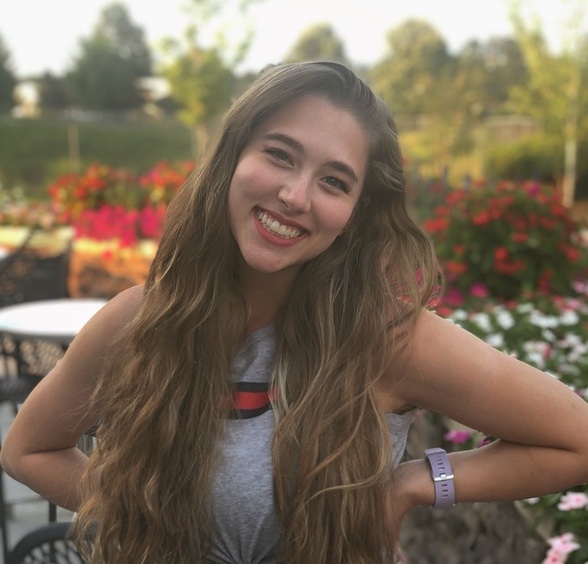
Never be Afraid to Ask For Help
Ultimately, Alexis says, “I think the key to my success was accepting that transition, accepting that things are harder now and that it’s okay to ask for help.”
As a student, it can be very overwhelming to deal with all of the responsibilities you have to balance on top of taking a difficult or heavy workload. It’s important to remember that when classes get tough, and you’re worrying about your grades, there are resources in place to help you. All you have to do is ask. No one is going to judge you for asking for help, especially if your school has already implemented those resources for you.
According to Alexis, the whole point is that “you’re reaching out because you want to be the best that you can.” Even if you feel like you’re asking dumb questions, you’re not. You’re showing that you’re there because you want to learn, and you want to make the most out of your time at university or college.
If you’re struggling and can’t locate any resources that can help you out, you can always turn to our team at Homework Help Global. Our team includes writers and scholars in a variety of fields and areas of study who are more than willing to jump in and lend their professional expertise whenever you need it. We have plenty of services available, from 1 on 1 tutoring lessons to editing and proofreading services that can help you get your grades where they need to be.
Exercise Your Way to Better Self-Care
One of Alexis’ favourite self-care routines is getting some exercise in whenever she can. This is one of her top priorities that she makes time for throughout her weekly routine. It’s fitting, since she’s an exercise science major, but exercise does so much good for the body, mind, and soul. Take it from someone who has studied the science behind it!
Exercise has been shown time and time again to be a beneficial way to relieve stress. When you perform physical exercise, the body produces endorphins, which are chemicals in the brain that help you feel good (think of it like natural, safe painkillers). It can also help you regulate your sleeping habits, which is another key way to manage stress levels.
Alexis also says that “regular exercise does improve academic performance.” There are plenty of scientific studies that back up her statement, too. Physical activity can help enhance your cognitive skills, which control your focus, memorization, ability to absorb information, and your academic behaviour overall. Additionally, it gets your blood flow circulating to your brain, so everything stays at peak performance.
For more tips on staying healthy while stuck at your computer or in a full-time courseload, check out our blog. Even something as small as getting up between study sessions and walking around for a little while can make a big difference for your body – and your brain.
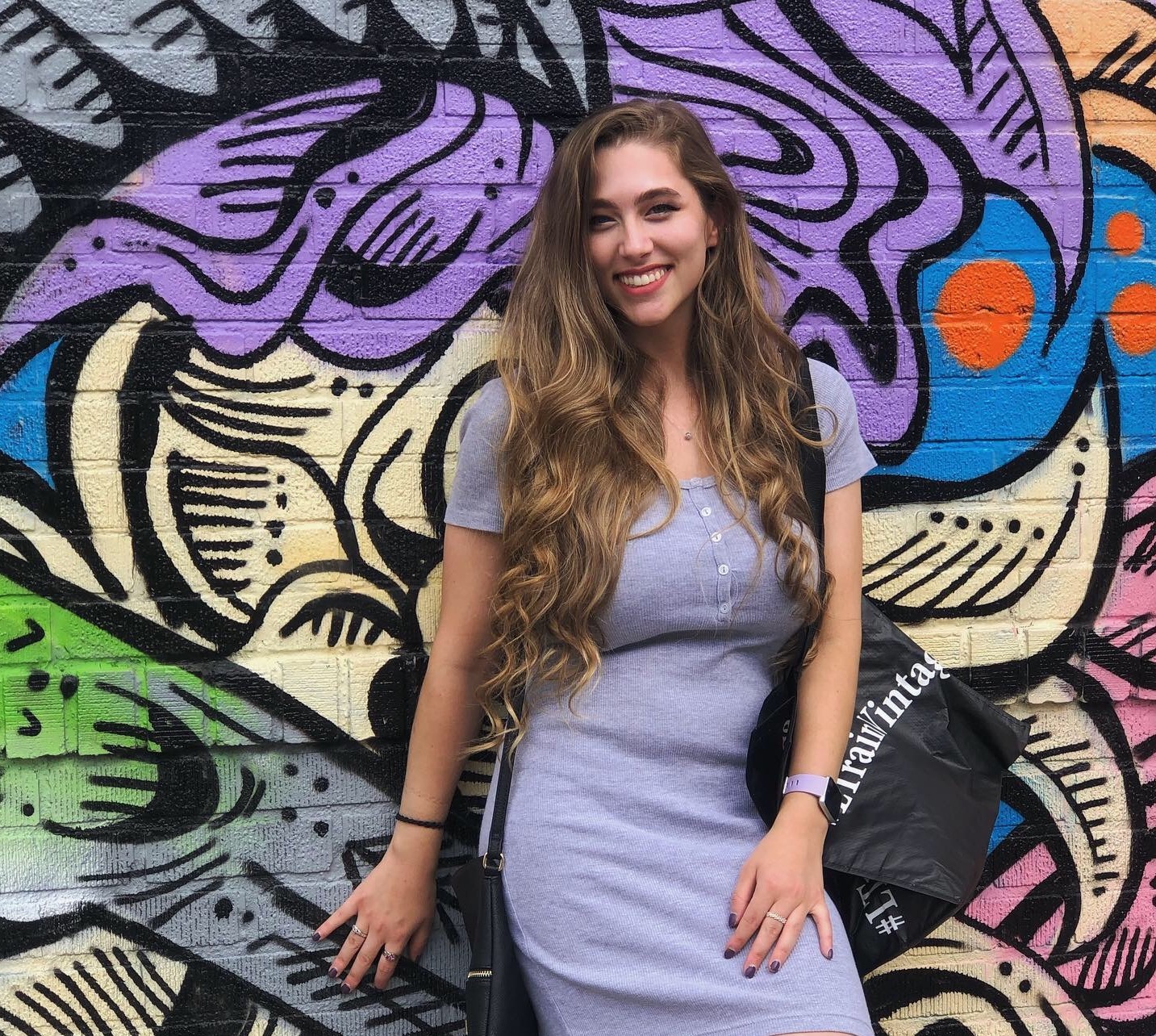
De-Stress in a Way That Works For You
Exercise is one of Alexis’ go-to self-care activities, and while exercise is something all students should be doing for their mental and physical health, it’s important to remember that self-care is something that looks different for everyone.
If you start to feel overwhelmed and stressed out, that stress is going to start impacting your academic performance. According to Alexis, when it comes to self-care, “It’s taking that step back when you realize that at a certain point, if you’re so stressed out, you’re not going to retain as much. And you really do need to find whatever works for you to release all of that stress.”
For some students, taking time to de-stress could mean taking a step back from your study session and meeting up with friends for a cup of coffee, or hitting the gym for an hour or so to get that blood flow pumping. Other students might be more comfortable taking a long nap to rejuvenate, or binging a show on Netflix to escape reality for a short period of time. No matter what you choose to do, it’s important to do those activities before the stress becomes too much to handle.
The Best College Memories Start When You Reach Outside of Your Comfort Zone
One of Alexis’ favourite memories from her time in school started with pushing herself out of her own comfort zone and embracing social connection. Normally, Alexis considers herself to be a pretty shy person who takes time to open up to people and feel comfortable around them, which is something many introverted people experience. However, on this particular occasion, things shifted.
Alexis and her friend were sitting in the library working on lab reports for their chemistry class. Her friend’s lab partner happened to walk by, and her friend invited him to sit down and join them. At first, Alexis was unsure about a stranger joining them, but within moments, she was talking and laughing. She recalls that, “it really felt like in that moment I had known him for years, but in actuality, I didn’t even know what his name was because he didn’t introduce himself.”
To this day, that unintroduced stranger is one of Alexis’ most treasured friends. They are still close, and have even been lab partners a few times since then. This memory is a constant reminder that being open to new experiences helped her make a valuable friendship she may have never encountered outside of school.
When it comes to making your own memories during your university or college life, don’t be afraid to reach out to others and get out of your comfort zone to talk to new people. University is all about making those connections and forming friendships at a time in your life when you’re still figuring out who you are and what you want to be. Those friendships are often lifelong friendships, and are always worth taking the leap.
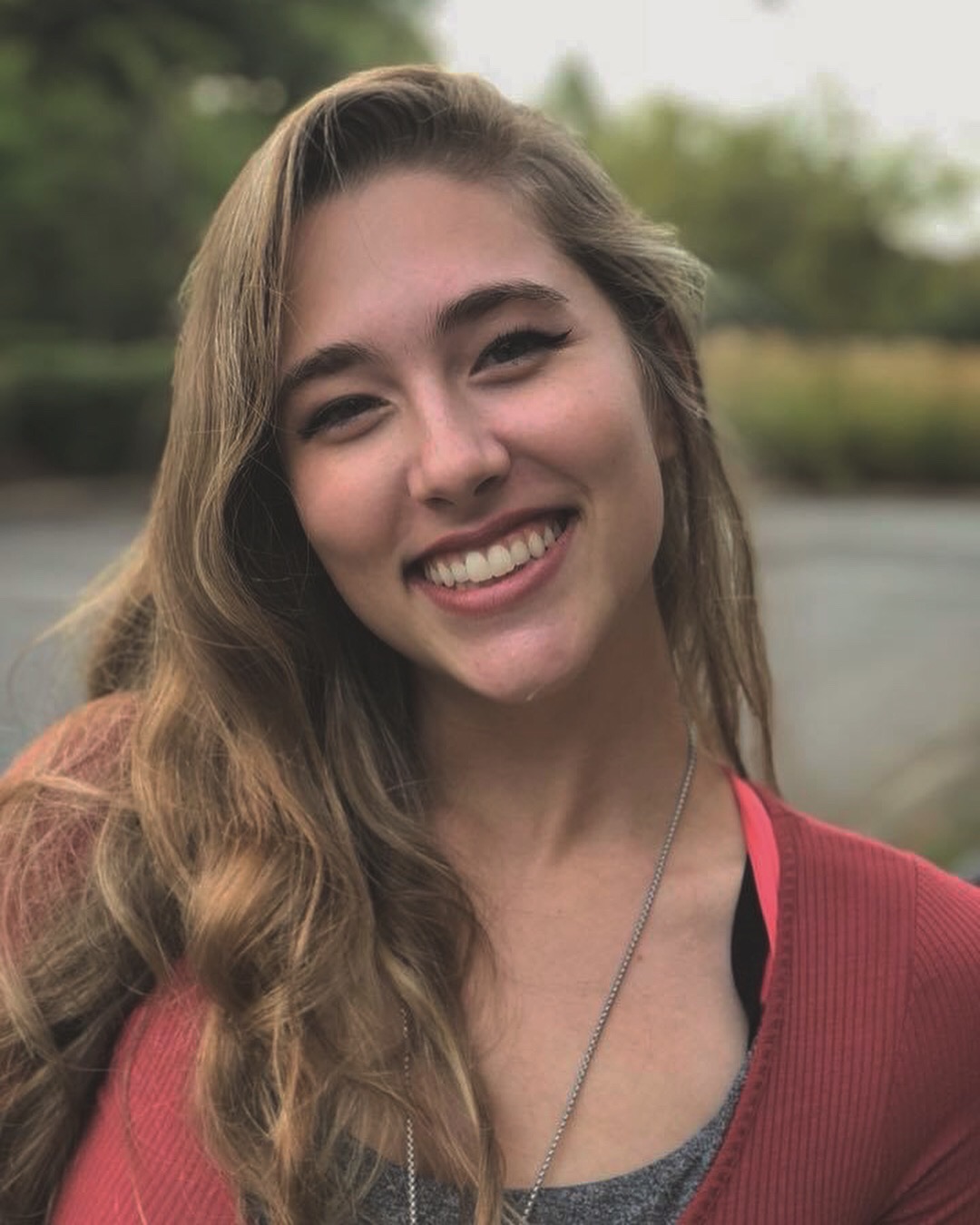
Listen to Alexis’ Full Interview Now on The Homework Help Show
So, what was it like to graduate during a global pandemic that shuttered campus doors and major events for the unforeseen future? What are her thoughts and experiences with being a woman in the traditionally male-dominated world of STEM education? And what are her most important pieces of advice for students who are starting school in the near future? Tune in to Episode 14 of the Homework Help Show Student Influencers podcast to find out and listen to Alexis’ full range of inspiring advice.
Listen to our full interview with Alexis on the Homework Help Show Student Influencers Podcast, available here on Anchor.fm or your favourite podcast streaming service. If you prefer to visualize, you can watch the interview on The Homework Help Show YouTube channel.
You can keep up with Alexis’ journey on her instagram page, where she shares even more words of wisdom.
FULL TRANSCRIPT FROM OUR PODCAST INTERVIEW WITH ALEXIS TERRACIANO BELOW
Alexis [00:00:01] College isn’t always about picking one thing and sticking with it and knowing that this is what you want to do, it’s also learning about what you don’t want to do.
Lesley [00:00:13] Welcome back to the Homework Help Show Student Influencers podcast. Our guest today is Alexis and we’re going to dive in and get started with her today. So, Alexis thank you for being here with us today.
Alexis [00:00:26] Thank you for having me.
Lesley [00:00:28] We like to start off each interview with just a few get to know you kind of questions. So let’s start off with where do you live?
Alexis [00:00:38] I live in Atlanta, Georgia.
Lesley [00:00:41] Perfect. And where were you born?
Alexis [00:00:44] I was actually born and raised here.
Lesley [00:00:46] Oh, nice. What university or college did you go to? I know that you just finished your undergrad.
Alexis [00:00:53] I just graduated. I’m sorry. I just graduated from Kennesaw State University.
Lesley [00:00:59] And what was your major there?
Alexis [00:01:01] I studied exercise science and I minored in Spanish.
Lesley [00:01:04] Oh, cool. What are you doing right now?
Alexis [00:01:08] Right now I am preparing for pharmacy school, so I’m taking my last prerequisites and then I am preparing to take the PCAT.
Lesley [00:01:17] That must be a little intimidating a lot all at once.
Alexis [00:01:21] Yes, it is. It’s a lot.
Lesley [00:01:24] What got you into that? I know that just from what I know about you so far, you kind of did a little bit of a pivot. So you started with the exercise science and now you’re going into pharmacy school?
Alexis [00:01:38] Yes.
Lesley [00:01:39] So what’s- what got you- like, have you always been interested in that?
Alexis [00:01:43] So when I was growing up, I knew that I always wanted to be in some part of the health care field for my love for people and caring for people and also my love for science. And I just didn’t know what part I wanted to. But when I was applying for undergrad, I was really passionate about health and fitness. And at the time, I wanted to pursue being a registered dietitian. So the plan was to major in exercise science and then for grad school, go into becoming a reg dietitian. And the program that I was looking into required that I took biochemistry. So in order to do that, I had to take organic chemistry. And that is when I found that I was not as interested in my current major as I thought I used to be. And I really love the physiological aspect and I loved chemistry. So together I figured pharmacy would probably be the best path for me.
Lesley [00:02:37] And you discovered that after you had already start- so you kind of discovered that midway through your program, the program you originally started?
Alexis [00:02:47] I actually didn’t realize this until the semester before I graduated because I wasn’t starting to take those- those prerequisites for my grad program that I had in mind until maybe like, like a year and a half before I was preparing to graduate.
Lesley [00:03:08] So that must have been a big change. Did you have to, like, do a lot of extra work to catch up on that, to get to the point where you were- to put yourself on the correct path?
Alexis [00:03:24] So I realized that I had the majority of the prerequisite prerequisites that I needed. So I only have six remaining. So even though that I graduated, I’m able to still take these classes that I need left without having to, like, reapply. And so when I get these six classes out of the way, then I should be on track. And it allows me to have this gap year. So I necessarily wasn’t behind, but there are still a few more steps I have left in front of me.
Lesley [00:03:58] But it’s not- it doesn’t seem like it’s a whole- because I know sometimes when you kind of pivot your degree, sometimes it can be like you have to make a complete shift. And I know a lot of people who had to do that and they kind of delayed them a lot. But it seems like you were able to keep all of that on track. So that’s good.
Alexis [00:04:18] Yes, I think it’s- it doesn’t really affect me too much, considering I was already a science major, so I had most of the classes that I needed anyway.
Lesley [00:04:28] So it’s kind of the same direction.
Alexis [00:04:31] Yeah. Not a lot of people who- who major in exercise science go into pharmacy, but it could easily be incorporated.
Lesley [00:04:37] Yeah. It seems like a lot of the similar strains of science and stuff like that.
Alexis [00:04:43] Yeah.
Lesley [00:04:44] Not that I’m familiar with science that much, but it sounds like it I guess. What advice would you give for students who are kind of looking to do the same thing, who kind of maybe started school and realized halfway through that they maybe aren’t in the right program or maybe they want to pivot? What advice would you give to those students?
Alexis [00:05:07] I would say that when you get to that point where you decide that maybe what you already planned wasn’t exactly what you wanted to do, instead of seeing it as maybe I- maybe I wasted my time, or instead of, like, feeling bad about that, take it as a learning experience because college isn’t always about picking one thing and sticking with it and knowing that this is what you want to do. It’s also learning about what you don’t want to do, because when you think about it, when you come in to college, most of us are straight out of high school, 17 or 18. It’s really hard to pick one thing and stick with it because you may think you know what you want to do. But in reality, you don’t have any idea unless you get that experience.
Lesley [00:05:51] Yeah, that’s definitely a really good point because it’s kind of drilled in, like I’ve heard a lot of people say, when you’re in high school, when you’re 17 or 18 and you all of a sudden you have to make this decision for what you want to do for the rest of your life. And maybe not everyone really knows, has that figured out at that point.
Alexis [00:06:11] Yeah. It’s really scary, but it’s- it’s definitely not something that not everyone else feels.
Lesley [00:06:18] Yeah, definitely. So what has that- I guess my next question was kind of what has that whole process kind of been like for you transitioning from undergrad to a grad program?
Alexis [00:06:30] So even though I can’t fully relate to that transition because I haven’t reached that program just yet, but I don’t imagine it being entirely different from that transition from high school to college because, you know, you may do things now, study wise that work for you now, but it may not work for you later. And I know that I’m going to have to accustom to those changes. Similarly, as I did before, because you’re in a new environment and you have different professors. So what may work for you now may not work for you in the future.
Lesley [00:07:04] Right. Are you going- you’re- the grad school program that you’re going to, like the pharmacy school program, is that at a different school than you’re at now?
Alexis [00:07:14] Yes. So my current school that I just graduated from and I’m finishing my classes at, they don’t offer a pharmacy program. So I actually want to go to a school that’s a little bit farther from here, not too far. Still staying in Georgia. But, yeah, I’m not staying in the same- the same school.
Lesley [00:07:36] Okay, yeah, ’cause I wasn’t sure if you had to maybe reapply to that or if you had to basically do that whole application process all over again to get into a new school. So I guess that’s kind of the second-.
Alexis [00:07:50] Yeah, it is like starting over, which is scary. But, you know, if it’s scary, then, you know, you’re doing the right thing.
Lesley [00:07:57] Exactly. On top of that, recently you graduated April. This past April.
Alexis [00:08:05] Yes.
Lesley [00:08:06] And that was- my next question is a lot of students who have graduated this year are kind of going through the same- this similar thing right now with the COVID-19 pandemic happening. And everyone kind of all of a sudden there were no graduations or there were- graduation wasn’t what they pictured when they originally started school. So what was that whole experience like for you graduating during a global pandemic?
Alexis [00:08:37] So staying motivated your last semester in general is really tough. But when you transition into remote learning halfway through the semester, right before spring break, it becomes even harder, especially because for me, I work best whenever I’m on campus, if I’m learning in class, rather than when I have to manage everything on my own and make sure that I’m on top of it because there’s more distractions when you’re at home. So it definitely was a rough transition. And I was kind of anticipating that when the speculation came around for universities shutting down my university, shutting down for the semester, I kind of anticipated that I wouldn’t get that graduation. But I understood that decision.
Lesley [00:09:23] Right. Did you end up having like, like a virtual ceremony, or was it just kind of like, here’s your degree in the mail kind of thing?
Alexis [00:09:34] So we didn’t get a virtual graduation, but they didn’t cancel it altogether. So the plan was in March. Since it was so early on, the plan was to move spring graduation to July for those summer graduates. But we’re seeing now that that’s probably not going to happen. And they postponed it to December. So that way, the spring and the summer and the fall graduates of 2020 are able to graduate at the same time. Now, whether or not that’s going to happen, we don’t know yet. But I do appreciate their effort in trying to have that ceremony that we’ve all been waiting for since we started.
Lesley [00:10:10] Right. Because that was- I know that’s like a lot of- a lot of students were obviously, when you’ve been working hard, when you’ve been working so hard for four years for something like that, it’s really- it’s- other people who don’t experience that might wonder why that’s even a big deal. But as a student and when you envision this graduation ceremony and that’s your goal that you’ve been working towards and your dream that you’ve been envisioning for so long and then all of a sudden circumstances that are way beyond anyone’s control happen. It’s- can be very frustrating. So I’m glad that they were and that they’re actually trying to give you guys a ceremony, wasn’t sure what a lot of different schools were doing for that.
Alexis [00:10:53] I’ve seen a lot of schools just cancel it altogether, not have virtual graduations. I’ve been seeing that high schools anyway, they’ve been doing like drive-by graduations. So it definitely makes me feel good that schools are going out of their way and accustoming to whatever they can to give that moment for the students.
Lesley [00:11:12] Right. Yeah, because not every school might have the resources to do that anyway. So, yeah, any school that can, it’s nice to see that they’re showing that they still care. Obviously they care.
Alexis [00:11:24] Yeah, exactly.
Lesley [00:11:24] Um, while you were in school or even now since you’re still working on that, did you work part-time?
Alexis [00:11:36] I did work part-time and in the beginning, I tried to work as much as I can whenever I wasn’t in school. And I realized that it was a little hard for me to balance. But the job that I had, thankfully, was like super flexible and understanding about being a student. So I yes, I did work.
Lesley [00:11:57] Would you- is that something that you- I know that some people don’t really have a choice when they have to work part-time or not, especially the students who go away to school, like outside of their state or their even their country. But is that something that you would recommend to students to get a part-time job while they’re in school?
Alexis [00:12:16] I definitely will recommend- would recommend somebody else to- to find a job if they feel comfortable and they’re in that position where they’re able to because it definitely does build your work ethic while you’re a student. So when you’re grad- when you graduate, you know, future employers are able to see that you have previous work experience no matter where it is.
Lesley [00:12:38] And probably that you were also able to juggle that part-time work while you’re in school, too.
Alexis [00:12:42] Yes. It shows that you’re able to handle not just school responsibility, but all responsibilities.
Lesley [00:12:49] Mhmm. Actually, speaking of responsibilities, how did you balance all of your responsibilities while you were in school? Did you figure out some kind of like system that helped you manage all your time?
Alexis [00:13:03] So it was a matter of trial and error because in the beginning, it definitely is hard. You’re transitioning and you have so much more responsibilities. For me, it was deciding what means the most to me and prioritizing that. So number one was studies first. Always. If I had a big exam coming up and my friends wanted to go out to get some drinks or they wanted to go get dinner, I would try to refrain from- from social events like that and focus my time on my studies because I knew that I had to give that time to myself. A second priority that I had was attending the gym regularly because it’s always been something that was very, very big for me and my life of going to the gym at least four to five times per week. So I always wanted to incorporate that because not only was it great for stress relieving, it was also shown by science that regular exercise does improve academic performance. So I tried to make that one of the top priorities.
Lesley [00:14:07] Yeah, I’ve seen those studies, too, and it just helps your- your brain circulation and getting all that, getting all the juices flowing kind of. That actually leads into the next thing I was going to ask you about was what- how did you kind of manage stress and prioritize self-care among all of your different responsibilities and working? But I guess exercising is probably a big part of that.
Alexis [00:14:37] Yes, exercising was one of the big ones, because in the beginning, I- I actually fell off of going to the gym as much because I felt like every second of that I wasn’t doing something school-related, I felt like I was not being productive. I felt like I wasn’t being a good student, which is obviously not the case. So over time I learned that, you know, I feel overwhelmed. Maybe I should go to the gym, maybe I should go grab some coffee with friends. It’s taking that step back when you realize that at a certain point, if you’re so stressed out, you’re not going to retain as much. And you really do need to find whatever works for you to release all of that stress.
Lesley [00:15:16] Yeah, that’s definitely something that I think is important for students to make sure they add to their regular routine and self-care is something that looks completely different for everybody.
Alexis [00:15:29] Exactly.
Lesley [00:15:30] So it’s nice to hear when people figure that out for themselves and kind of learn what works for them and how to fit that in. So, looking back on your undergrad, what do you- what would you say was kind of the key to your success or was it that stress, self-care balance?
Alexis [00:15:54] I think the key to my success was accepting that transition, accepting that things are harder now and that it’s OK to ask for help. It’s OK to go to tutoring sessions. And if it wasn’t for, you know, taking that leap and actually going to these tutoring sessions that my classes held for free, I probably wouldn’t be in the position that I am. Because when I decided to first start going to tutoring, I was taking my organic chemistry class my first semester. And the tutor that I had for that, he really made it so easy to- to understand. And that’s when my love for organic chemistry really just came about. And I honestly don’t know if had I not gone to those sessions, if I’d even be in this position that I am right now.
Lesley [00:16:42] It’s definitely- it’s definitely a good point that the way that you- the way that you’re taught something has a really big impact on the way you absorb it and the way you get interested, because if you have a professor that just you just cannot listen to or you just can’t get into, it can make a huge difference.
Alexis [00:17:03] It does. It really depends on- on that. Professor. And who is delivering that information.
Lesley [00:17:08] Yeah, I had a professor- one of my professors was like that when I was in university and he just like was very dry and had this way of talking that it was just so hard to understand. And no one did well in that class because no one paid attention to him.
Alexis [00:17:22] Yes, I definitely know professors like that. Yeah.
Lesley [00:17:26] It was- it was definitely frustrating too. And it’s like, why would they hire someone like that? I don’t know. But yeah. So that definitely, and learning to… It’s nice that your school had free tutoring sessions or lessons available to you. I don’t know if a lot of schools do that or not.
Alexis [00:17:47] I know with specifically for the notoriously hard classes. I can’t speak for any classes outside of science. But there are generally, like, your chemistry courses or biology courses, anything that had, like, high not- not high fail rates, but that were just harder for students. They generally had those tutoring sessions available for students who qualified for them.
Lesley [00:18:10] That’s awesome. And that’s good that you kind of just embraced it and took advantage of it because those resources are there for people to take advantage of and to learn. And a lot of people, I think, are kind of afraid or hesitant to ask for help or to admit that they need that extra help. So I think I’m taking that step really is, really shows a really good character. Like really you’re dedicated to your growth.
Alexis [00:18:38] It really shows that you care about your grade that much, too, because you may feel like you’re asking something and it sounds- what you think sounds dumb. It really isn’t. It’s the whole point of you don’t understand this and you’re reaching out because you want to be the best that you can.
Lesley [00:18:52] Yeah, exactly. And always, always focusing on that, bettering yourself and getting better grades, because that’s why you’re there in the first place.
Alexis [00:19:00] Yeah. Exactly.
Lesley [00:19:00] So that’s awesome. So what was one of your favorite memories in school so far?
Alexis [00:19:09] So this memory that pops out to me the most is this one time I was studying with one of my friends in the library. We were working on our lab reports for our chemistry class and her lab partner walks by and she invites him to sit down. And normally I’m really shy and it takes me a really long time to open up to somebody. But the second that he sat down, he started striking up a conversation. And we’re all laughing. We’re all just talking. And it really felt like in that moment I had known him for years, but in actuality, I didn’t even know what his name was because he didn’t introduce himself. And, of course, you know, I could mention the connections I felt with my professors or I could talk about research I had the opportunity of participating in. There’s so many things that happened. But I think it’s this memory that sticks out to me the most because that memory brought me to one of my most treasured friends to this day. And if it weren’t for attending that same university, then I don’t know if we would ever cross paths because our- our foundation of our friendship started in university. And from there we were lab partners and we built a lot of memories during our undergraduate years together. And I think that was really nice.
Lesley [00:20:22] That’s amazing. It’s one of those- those moments that are definitely hard to find, but it’s always valuable I guess.
Alexis [00:20:32] I agree.
Lesley [00:20:34] But that’s another thing, too, is that with university, it kind of brings you out of that comfort zone. So you- you get to meet all these people who you never would have even said hi to before.
Alexis [00:20:46] Exactly. You’re meeting new people all the time and you’re connecting with people you wouldn’t even think that you would. And it’s really nice. And something about him specifically was he really made me feel that it’s OK, that school doesn’t always have to be about studying 24/7. You can have fun. And he really showed me that. And I’m really thankful for that.
Lesley [00:21:07] Yeah. And I think that’s too, like the university isn’t just about studying. And I mean, obviously, you’re there to get your degree.
Alexis [00:21:15] Yeah, it’s a big factor. But I think it’s like.
Lesley [00:21:20] Yeah, like there are so many other things that, there’s so many other benefits to going to university, including that whole expanding your network, expanding your social circles and just learning how to balance with- learning how to be an adult.
Alexis [00:21:37] Yes, exactly. I agree.
Lesley [00:21:39] Some people don’t know that when they start university.
Alexis [00:21:44] Yes. And it’s a hard reality when you realize that what you thought maybe isn’t how it’s going to go.
Lesley [00:21:52] Speaking of learning how to be an adult. What are some of the struggles or challenges that you faced as a student? And how did you overcome them?
Alexis [00:22:03] So before I started college, I was a straight A and B student all the time, and I never made Cs and I always saw making Cs in my eyes, for me, was- was like failing. Even though it’s not. So, my freshman year I had a lot of challenges I was faced with. I was finding it really difficult to transition and I didn’t make just one C, I made three. And I made them all at the same time. And really for me to overcome it was I had to accept that this is what happened. You know, it’s part of life. You’re not going to be perfect all the time. You can’t be hard on yourself all the time. So I took that and I evaluated how I can make that better. And that’s when I also started to go to tutoring sessions. I started finding outside resources. I was connecting with more people that could help me out. And I, I really took it as a chance to just better myself.
Lesley [00:22:58] That’s- that’s definitely how you turn a negative into a positive.
Alexis [00:23:02] Yes.
Lesley [00:23:03] That’s something that I know a lot of people I know had that same thing. Everyone was so used to getting As in high school and then so they went to university and they thought that they were still going to get As, but they didn’t. Like they weren’t mentally, I guess, mentally prepared for the difference.
Alexis [00:23:22] And it goes back to what worked for you in high school for studying, like I used to study just the night before, and I used to be fine. And I thought I could continue doing that in college. And being a science major and taking these classes, they’re significantly harder than they were in high school. And it was- it was a harsh reality that I had to suck up and basically just evaluate the situation and do- and be of that understanding of this didn’t work for me then. I mean, this may work- may have worked for me then, but it doesn’t work now. So how can I change it?
Lesley [00:23:55] I went through kind of some of- something similar to that too, where I was studying for everything the night before in high school. And I was like, I can’t do this in university. This is not working.
Alexis [00:24:05] It is way too much information.
Lesley [00:24:07] And it’s just like everything. All the essays are longer and the tests are- even the way the tests are worded is harder and everything is just harder.
Alexis [00:24:19] Definitely. And for me, towards the end of my major, it wasn’t even like multiple choice anymore. Everything was free response, the whole entire test. So it’s not something I could be like, oh, I recognize this. So this is the right answer. You really had to understand that concept or else you just didn’t do well.
Lesley [00:24:36] Yeah, it’s just coming, at this point- at that point, it’s coming out of whatever is in your head.
Alexis [00:24:41] Yes, exactly. You just spew out everything that you could think of about that subject.
Lesley [00:24:46] I guess the best- the better thing about that is that at least you know that you know what you’re talking about instead of just like memorizing a certain thing.
Alexis [00:24:53] Yes. It may have been hard for me then of- it was stressful because I wanted to make sure that, you know, I was fully prepared and I was- it gave me a bunch of stress and anxiety. But now I can look back on that and I’m thankful for it because I know that most of my exams are probably going to be like that in the future. And I have to get used to not just knowing something, but being able to connect all the dots and be able to relate it back to what really matters.
Lesley [00:25:24] One of the best things I’ve kind of learned over the years is that you- it shows that you really, really know what you’re talking about. If you can explain that thing to someone who doesn’t know anything about it. If you can actually, like, put it into words that someone else will understand. That’s a good indicator of how well you understand that concept.
Alexis [00:25:48] Yes. And it’s a great study tool to use.
Lesley [00:25:52] Yeah, it’s called active recall. I think it’s a study technique. So I know we kind of talked about some of the goals that you’re working on right now. What are some of your more long term goals? I know we kind of did touch on that a little bit, too, but.
Alexis [00:26:08] So a great long term goal in the sense of pharmacy is going to be graduating pharmacy school and making an impact in not just my field, but to empower other women that we can be scientists. We can be doctors. If that is through making an impact through research. I want to be able to make some form of impact using the knowledge that I have now and imply- and implementing it with what I have yet to learn. I also have, for long term goal wise, I still have my fitness related long term goals that the knowledge that I- that I gained from undergrad, I want to implement that in being the strongest person that I can be and empowering women for that too. Or not just women, but everybody, you know. And then short term goals, I would say probably is just overcoming these- these hurdles, these obstacles to get to pharmacy school, to be able to apply and hopefully get accepted.
Lesley [00:27:10] I know there’s a lot of extra obstacles right now.
Alexis [00:27:16] Yes.
Lesley [00:27:16] Like we already talked about. But- because you’re doing all those classes online, right?
Alexis [00:27:21] Yes. Well, I’m taking two this- over this summer and they- they are online, but my university is saying that they plan to open- to back to on campus learning for the fall. So we’ll see how that goes.
Lesley [00:27:35] So you would transition back, like those courses, you would normally take them in person, right?
Alexis [00:27:40] Yes, I would normally take them in person. And I anticipated taking the rest of my classes this year online. But they- I think they took new- new ways to implement the whole social distancing and being safe about everything. And so we are going to be taking that in person, which I am- I am pretty thankful for as long as, you know, there are safety and all that kind of stuff, because I’m gonna be taking these labs and I can’t even imagine taking those online.
Lesley [00:28:10] Now, that’s- I always kept thinking about that when they, everything first went online was how are people, like one of my friends is in culinary school. And I was like, you can’t do that online.
Alexis [00:28:22] I don’t know how you would do that.
Lesley [00:28:24] No. So I guess at that point, you just, I think you just take that semester off, I guess is what.
Alexis [00:28:32] Yeah.
Lesley [00:28:32] That’s what I would do anyway. I just. I’m- I’m just going to give this year a pass.
Alexis [00:28:38] Exactly. And we have all this time to, you know, just reflect on other things with the whole staying home and everything. So you’re not really missing out on that. If you need to take a break, definitely take that break.
Lesley [00:28:50] Yeah. And staying safe and healthy is the most important thing anyway right now. So everyone’s just doing what they have to do.
Alexis [00:28:58] Yes.
Lesley [00:29:00] One of the questions that we always ask people is because we get some really interesting answers from this question, is if you could go back and talk to your 15-year-old self, what would you say?
Alexis [00:29:13] I would tell myself that standardized test scores aren’t everything, because for me, when I was applying for my university, I got denied because I was three points away of my SAT score. And I know that it didn’t define me, but it did hurt. So I think I would tell myself to not give up and to if it’s something that I really want to fight for that. I would tell her that your grades and those scores, they don’t define your intelligence. And it’s OK if you don’t know what you want, it’s OK if you feel lost. It’s OK to change your mind if- if something that you said you want to do is no longer what you want to do.
Lesley [00:29:53] I think that’s a really good point is your grades- what you said about how your grades don’t define your intelligence. Because I know there’s a lot of people, even like looking back on high school, a lot of people, they were so invested in those marks. And if they even got a- if they were, like, a straight-A student and they got a B and they were just so hard on themselves. And I think that can be really damaging, so.
Alexis [00:30:19] It’s really hard to- when you’re not used to making those grades and you have this high expectation of yourself and you don’t need it, you feel like you’re failing yourself. But you’re not. You’re human. You’re going to make mistakes. And a B is not the end of the world, just like those Cs weren’t the end of my world. And at the end of the day, I graduated with a GPA that I ended up wanting and that I- I started college with. So it’s- there’s always time to make it up.
Lesley [00:30:46] Definitely. What advice would you give to any student who’s starting school this year?
Alexis [00:30:54] I would definitely tell them to be patient with yourself because we’re starting this- this time. And it’s very interesting with the whole pandemic and all of that, it’s really easy to be hard on yourself if you don’t feel like you’re being perfect all the time. But even outside of the pandemic, I would probably tell him something similar to what I would tell my younger self. And it’s that, you know, you don’t have to be feeling like you constantly have to do something to be productive in order to feel like you are a good student. Because if you’re not- if you’re not working on something school-related, every second of the day doesn’t mean that you are setting yourself up for failure. You’re human and you have a life outside of school and you should definitely take- take college seriously, understand that it’s going to be harder, accept the transition, but also have fun, because this is the time where you can, you know, take new electives. You can try new things. It’s a time to learn more about yourself and really enjoy yourself.
Lesley [00:31:59] Definitely. That’s definitely some really important advice, too. Like, it goes back to what we were talking about, how obviously the main reason you’re in university is to get your degree, but it’s not the only thing. And it is a time like once you graduate from university, you are thrown into the real world. So it’s best to take advantage of everything you can do in university and learn new things and try out new things. And if you- if you fail, when you try new things in university, if you fail, it’s a lot easier to come back from that than if you do them later on in life.
Alexis [00:32:38] Exactly. And this is the time where you’re supposed to be learning from your mistakes. And so that way, when you go into the real world, you’ve already experienced all of this and you’re prepared.
Lesley [00:32:47] Right. Exactly. Another thing we always ask is, do you have any favorite motivational quotes that you’d want to share?
Alexis [00:32:56] My favorite motivational quote is if your dreams don’t scare you, they aren’t big enough. And this kind of goes back to something that I mentioned earlier is that, you know, when I was pursuing becoming a registered dietitian, I wasn’t scared of that leap. I was scared that I was making the wrong decision, that I was going to go through something because I picked it and I had to stick with it. Then when I decided that I wanted to do pharmacy, I was a week- I was a semester away from graduating and I felt like it was too late. I felt like I was wasting my time and it scared me because it was different. But because it scared me, I knew that I was doing the right thing. When you set- set something out for yourself, and it scares you, you are acknowledging that your true potential. And if it doesn’t scare you, you have to reevaluate the situation and ask yourself if you’re sitting in the spot that you are because it’s your safety net or if you still have some room to aim higher.
Lesley [00:33:57] I think that’s so true. I think that, you know, if- if you’re not intimidated by something and then you’re obviously comfortable and you know that you’re going to do well at it because you’re probably already good at it.
Alexis [00:34:11] Yeah.
Lesley [00:34:11] And it’s those things that are really, um, a little riskier, I guess, is what I would say.
Alexis [00:34:18] Yes.
Lesley [00:34:18] Really, really test your knowledge and really help you learn more. I think you can learn more from things that are more challenging.
Alexis [00:34:25] Yes. Because if it’s scary, then that means it challenges you. Which is- it is never going to be a bad thing. If it challenges you, you are pushing yourself to be better. And you’re pushing yourself because you know that you can do it.
Lesley [00:34:37] Exactly. One last final fun question is, what is your favorite social media platform and why?
Alexis [00:34:46] My favorite is a tie between Snapchat and Instagram. And that’s because Snapchat is easier for me to connect with my friends, because I’m really bad with texting back. And then I really love Instagram because Instagram is so diverse with the amount of people that you can meet. You can- there are so many people doing their own thing. And Instagram is actually what brought us to this interview here today. You’re connecting with so many people. I just think it’s a really beautiful thing.
Lesley [00:35:13] We connect with a lot of people on Insta- a lot of the people that we talk to on our podcast, we connect with them a lot through Instagram because it’s just an easier, easier way to meet people and interact with people, so.
Alexis [00:35:29] Yes, I think it’s a great way to meet new people all around the globe.
Lesley [00:35:35] Yeah, I was talking to someone a couple weeks ago and they were telling me that they had met over Instagram. They’d made these friends across the world and then they were like became really, really close friends in completely different countries because they met on Instagram. I was like, that’s crazy.
Alexis [00:35:53] So amazing. That’s so exciting. You never know you’re going to meet. You never know you’re going to come across.
Lesley [00:35:58] Yeah. I thought that was so fascinating. So that’s really awesome. So on that note, just before we say goodbye here, do you have any final insights that you want to share for our listeners?
Alexis [00:36:15] So there is this one thing that I heard from someone very special to me that I wanted to share, because I think it goes well with what we’ve been talking about. And so he was talking about the relationship between feeling overwhelmed and that with growing responsibility and sort of seeing that as a bad thing or seeing it as a good thing. Because, you know, we take on challenges and we know that it gives us stress, it gives us anxiety, possibly even self-doubt. But we continue to take on new challenges, more challenges. And the reason why we do that is because if we were just to feel whelmed, then we would be stationary, we really wouldn’t be going anywhere. And if we’re feeling underwhelmed, we wouldn’t be maximizing our true potential. So feeling overwhelmed means that we are growing and growing can be uncomfortable and growing is a privilege. So we shouldn’t see it as a bad thing. We should see it as being our best, our best selves and taking that step to really, really challenge ourselves and really add on those responsibilities. So that way we can be in a position where we are maximizing our full potential.
Lesley [00:37:27] Yeah, that’s- that’s a really good point, too. And even too, when you’re your super overwhelmed or something, when you come out of that, when you, like say you have all this stress piled on, and all these- all your responsibilities are building up. But when you tackle all of those responsibilities and you come out from being overwhelmed, that feeling is amazing. That feeling of accomplishment and like, I guess productivity.
Alexis [00:37:52] Yes.
Lesley [00:37:53] Is. So- it’s very sort of very constructive, I guess.
Alexis [00:37:59] Yes, it’s very satisfying to overcome everything that was once overwhelming to you and you overcame it and you succeeded. And you look back and you remember that time and you’re thankful for it because it brought you where you are and you continue to take it on because you just want to keep on building and- and trying to be better than you were before.
Lesley [00:38:20] Right. Exactly. I think that’s- that’s such a great note to leave off on to. Yes. Some words of inspiration. Well, thank you so much for joining us and taking time out of your day to talk to us- to talk to me today.
Alexis [00:38:36] Thank you for inviting me. It was a pleasure speaking with you.
Lesley [00:38:40] And we learned a lot from you. And we will definitely keep in touch with you and see where you’re at in the future.
Alexis [00:38:48] Thank you so much.
Lesley [00:38:49] Thank you. Bye.
Share:
